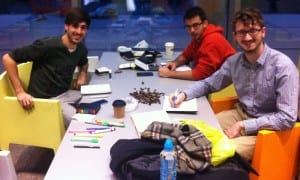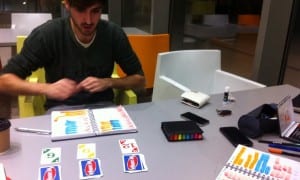The University of Lincoln is set to play host to a network of industry leading designers, artists and educators as they contemplate the future of our creative industries.
The Jobs 2050 Design Learning Challenge will see some of the biggest names from the design work look ahead to what the future might hold (particularly by 2050, hence the title) and work together to anticipate what things could look like tomorrow for the next generation of creative minds.
Taking place over three days, from the 11th to the 13th February, the Challenge will task participants with contemplating an increasingly entrepreneurial society.
Doris Wells-Papanek, one of the founders of the Challenge and Director of the Design Learning Network in the USA, said, “By 2050, students who graduate from high school in 2015 will be over 50 and babies born today will be in their 30s. The university students and school pupils who engage in this challenge with our network of professional designers will therefore be addressing the learning needs of the next generation of creative problem solvers as well as their own.”
Over 500 participants, from both universities and secondary schools, are set to attend the workshop programme and will be offered a unique opportunity to work with their peers sitting over 5,000 miles away via real-time Skype conversations.
David Bramston, another of the Challenge’s founders and Programme Leader for MAIDE at the University of Lincoln, said, “International communication is central to our MAIDE course here at Lincoln. Our postgraduate students are already participating in projects with design partners around the world; in Beijing, Philadelphia, Toronto, Shanghai and Gaungzhou. The programme actively encourages students to engage with the international design community, creating new proposals for a wide range of clients, trade fairs and exhibitions. We are delighted to be bringing the creative sector together again with our second Design Learning Challenge. Here at Lincoln we share a vision with Doris; to create effective and sustainable links between designers and educational institutions on a global scale. We hope this project will encourage the community to embrace new forms of communication, to help solve design challenges of the future.”





